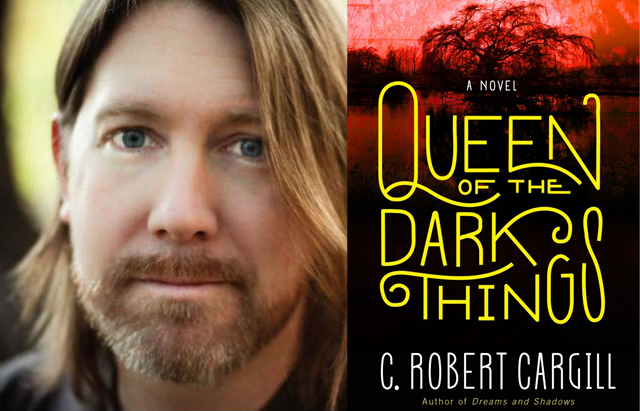Queen of the Dark Things is an engrossing follow-up for urban fantasy author C. Robert Cargill

Urban fantasy author of ‘Dreams and Shadows’ returns for a followup that’s just as fascinating and fun to read.
When the world seems dark and troubling, it’s easy to imagine that you’re the hero in your own story, fighting demons and rescuing damsels (male or female as you prefer). But sometimes high fantasy can be a barrier for newer readers, a new world filled with weird words and geography, magical beasts and kingdoms; why can’t we just have it on Earth, like Harry Potter? Ah, but that’s where urban fantasy comes in. This is the genre that takes magic and fantastical concepts and shoves them whole cloth into our own non-magical reality. Depending on the rules of this urban fantasy version of our own world, sometimes all magic has just been hidden or perhaps it’s just about to be discovered. The former is far more common, because we humans love our conspiracies and mysteries. So we take our Earth and shake things up, but sometimes the darkness of reality can’t help but bleed through into the stories we invent.
Following up on his urban fantasy book Dreams and Shadows, author C. Robert Cargill returns with a direct sequel Queen of the Dark Things. In a similar way to the first book, Cargill blends past and present timelines to continue the story of itinerant rogue wizard Colby. The story continues to show more of the tale of Colby’s childhood and his training in magic while also directly continuing from the dark events of the first book. This time, Austin is not only home to the faeries and myths of before, but new mythos show up. We see the seventy-two Goetic demons from The Lesser Key of Solomon, mainly more pseudo-Christian imagery, but there’s an extended series of events about the Aboriginal shamans in Australia. Even a real life historical horror, the massacre in the Batavia is integrated seamlessly in the story. But this is once again a story about trickery and cleverness, how power can be abused or misunderstood, and the complex morality of the real world transposed into fantastical circumstances. Colby must face an old threat and make an impossible choice, all the while trying to keep his remaining friends alive.
One thing that remains true about Cargill’s books is the clear and robust world building, a foundation of various mythos to show a world rife with fantastical conflict yet strangely believable. The characters are well defined, although the primary focus is on Colby and his childhood friend, meaning that there isn’t as much on the tertiary characters. There are glimpses of hidden depths that I would hope are reflective of careful consideration instead of accidental meaning. That said, sometimes subconscious ideas never explicitly considered turn into ones realized on the page. Just like Dreams and Shadows, there is a darkly comic style at play here, with death and despair evident despite the best wishes of the heroic characters. There are far fewer wish fulfilments built into these characters than most urban fantasy stories; Colby may have a tragic backstory but he’s not constantly bewitched by eldritch ladies, or vice versa. Well, there is one minor exception, but that’s acceptable considering it’s an idea I rarely see.
This is a quick and engaging read, mixing just the lightest bit of complexity until the final denouement. Some of the plans aren’t really that clever or are so obtuse they don’t have any meaningful way to be understood by the reader. But for the most part, the book is fun and only rarely overly confusing. I don’t particularly like it when stories invent wholly new rules for magic without thinking it through, but I find Cargill usually manages to sidestep this problem. Just like his last book, Queen of the Dark Things includes interstitial excerpts from a fictional book on magic that sheds light on relevant plot details, a narrative device I personally enjoy but some might find a bit too dry.
The ending may be a bit too easy for some, but I found it satisfying and a reasonable endpoint to the drama built up over 400 pages. This isn’t a book with highly complicated twists and turns like George R. R. Martin’s A Song of Ice and Fire or Joe Abercrombie’s fantasy books, but it has some of the fun silliness and near darkness of Jim Butcher’s The Dresden Files. I like how carefully this world is considered, and I like how easy the book is to finish, just a relaxing few hours and you’re done. It’s a compromise for those that like Game of Thrones but are intimidated by the thousands of words and hundreds of characters. Try these two from C. Robert Cargill and ease yourself into it.
 CliqueClack
CliqueClack

